Which outfit looks best? AI set to give shoppers smart styling tips
Fashion retailers are making use of artificial intelligence to offer consumers a wider range of options and to provide personal styling suggestions
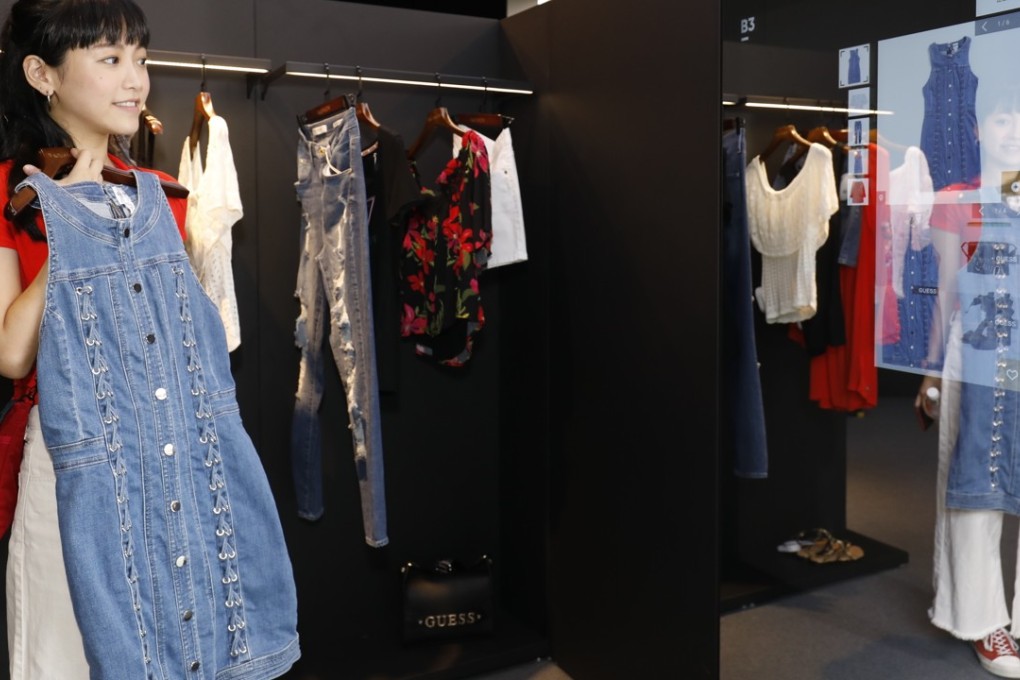
“Do I look fat in this?”
There it is, the question dreaded by many on the receiving end. But worry not: you can now defer to a higher authority – a machine.
AI (artificial intelligence) is reshaping the fashion industry, and in a crossover to retail, it’s set to change the shopping experience soon.
Hongkongers were privy to what this will mean in the fitting room when Alibaba Group – the owner of South China Morning Post – and US fashion brand Guess launched a pilot FashionAI concept shop at Hong Kong Polytechnic University (PolyU) in July. The initiative taps technologies ranging from machine learning to computer vision to “learn” from consumers, designers and fashion aficionados within the e-commerce ecosystem, which is also set up to spot fashion trends.

By making mix-and-match recommendations, the technology also removes those nagging decisions about how to style a look.
“This is a major step,” Alibaba Group vice-president Zhang Zhuoran said. “It would be the equivalent of consumers having their own personal stylists.”
In the scenario presented on the PolyU campus, customers checked into the concept store using a mobile Taobao ID code, or via facial recognition. While browsing, garments picked up from the RFID-enabled clothing rack automatically showed up on the smart mirror, which gave styling suggestions.
Items added to a virtual shopping cart were delivered to the next-generation fitting room by (human) staff, whom the smart mirror could again summon with updated colour and size requests.
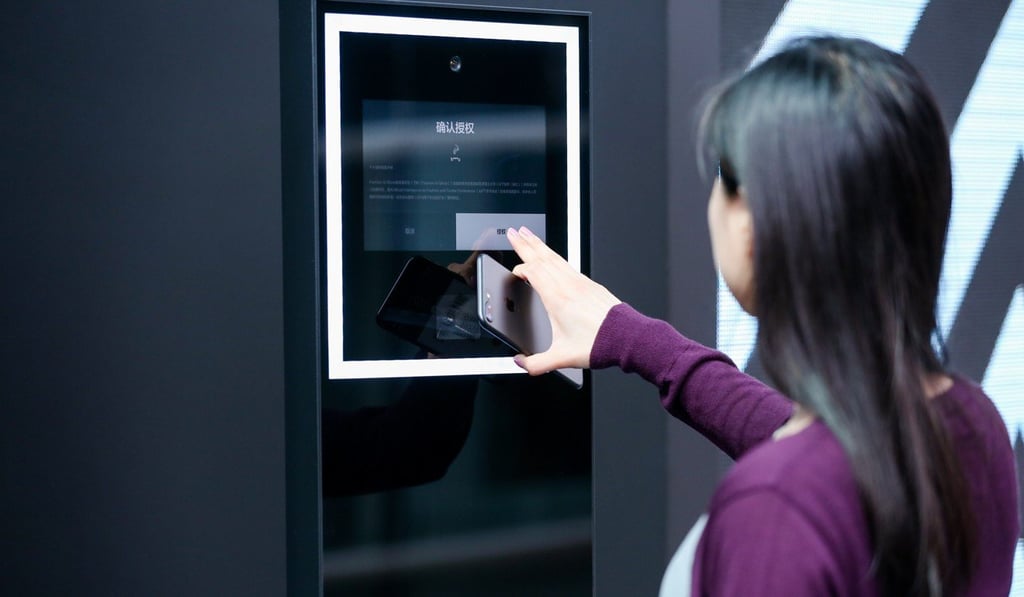
Further stepping into the future of fashion, Alibaba plans to release a new “virtual wardrobe” feature on its mobile Taobao app. This would allow shoppers to view clothes they’ve tried on in-store, as well as mix-and-match recommendations across brands that include items from more merchants on Alibaba’s shopping sites, Taobao and Tmall.
Of course, the technology showcased is one more tool vendors can use to collect and analyse consumers’ data. Guess says the intention behind it is to improve the customer experience. “There is no specific timing to bring this functionality to current stores but we will keep working on its development to bring them as soon as possible,” the company says.
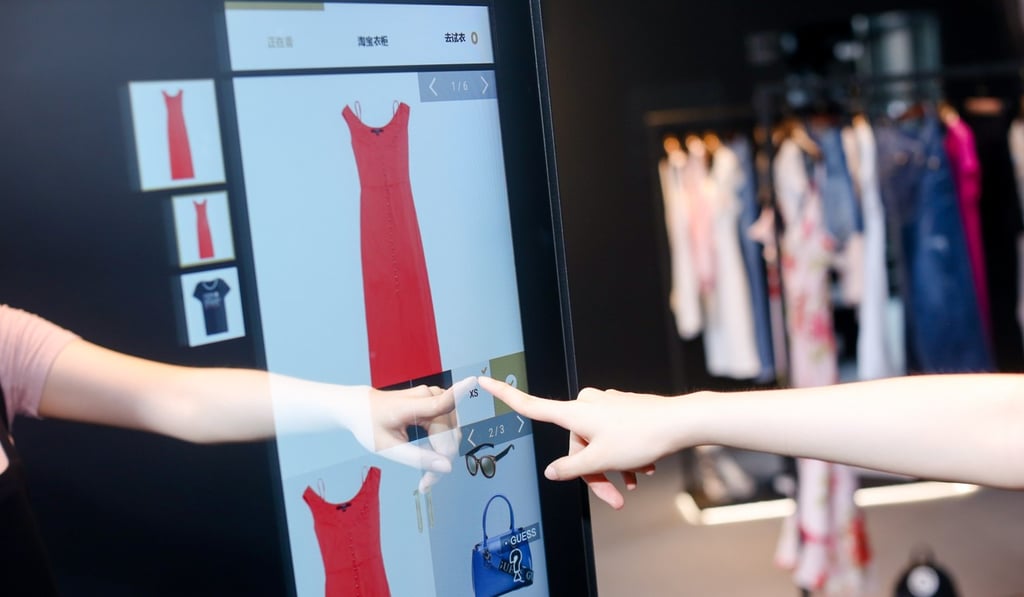
Alibaba, meanwhile, continues to refine this AI-powered retail set-up but does not have a specific time frame in mind regarding its commercial roll-out. “However, we are of the view that a lot of retailers are ready to embrace this new technology which is what the future of fashion retail could look like,” Menglei Jia, senior staff engineer, Vision and Beauty, Alibaba Group said.
“As to the next steps, we hope with the latest AI technologies, like machine learning and computer vision, we can offer many untapped opportunities for fashion retailers,” he added. “We hope to make available innovative offerings that will deepen our partnerships with brands and retailers, offering imagination and better experience to consumers.”
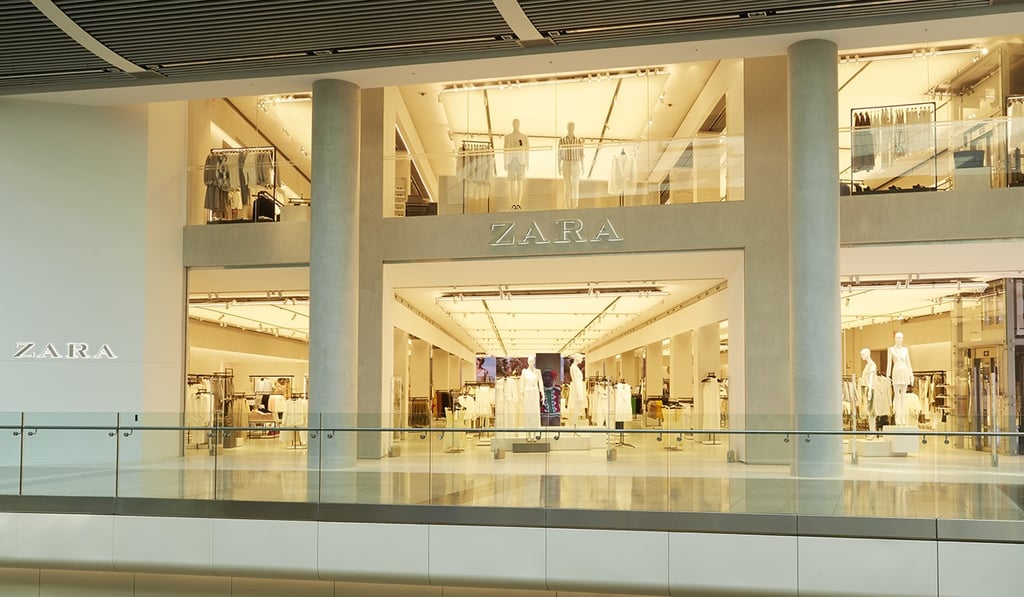
Elsewhere, Spanish fashion brand Zara tested out its AI retail concept at its London store earlier this year. In a crossover between e-commerce and in-store shopping, the store was a first worldwide for the brand designed primarily for ordering and collecting of online orders.
As customers browsed in a physical store, they placed their orders online. Staff armed with mobile devices were on hand to assist, while payments were made via an innovative card terminal system operated via Bluetooth.
We hope with the latest AI technologies, like machine learning and computer vision, we can offer many untapped opportunities for fashion retailers
The pop-up store also had a styling recommendation system based on information screens embedded into mirrors. “Once customers scan an item using RFID technology, the system can bring up, in the right size, multiple choices for coordinating and combining the item they are trying on with other garments and accessories,” the company explained. Some of these futuristic concepts were incorporated into Zara’s Westfield Stratford flagship when it reopened after refurbishment in May.
No time to visit a store? Fashion brand Gap is helping shoppers to virtually “try on” its garments without leaving home. Through an augmented reality experience of the pilot app DressingRoom by Gap, users choose a Gap style that they might be interested in buying, and match it with five body types to gauge how it would look on themselves. If they love it, they can buy it online.
For its spring/summer 2017 collection, luxury French brand Chanel wowed a runway show with model “robots” wearing its clothes. How about a machine that actually designs them? Amazon is working on that right now.
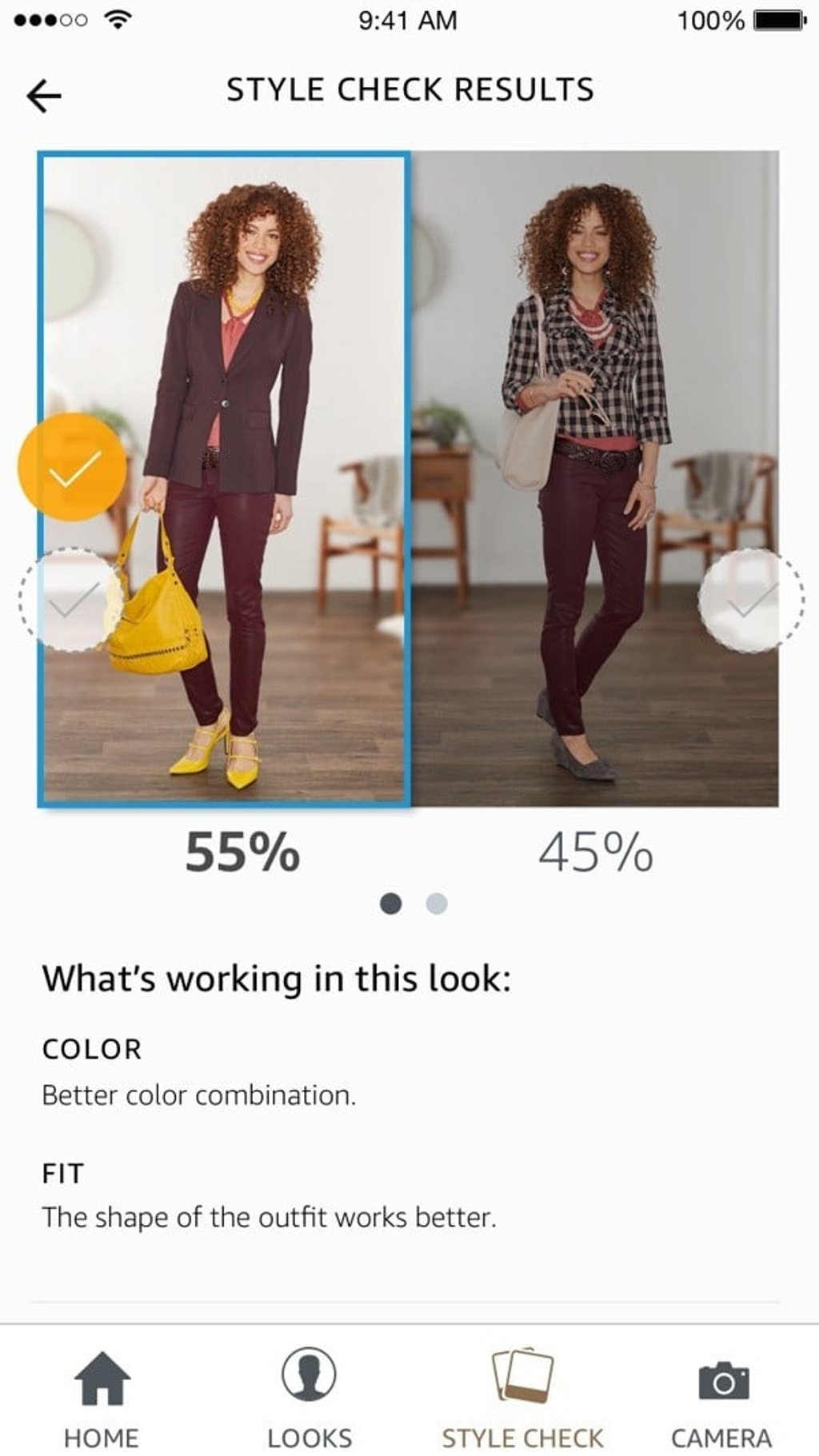
As reported in MIT Technology Review, researchers at the e-commerce juggernaut are developing several machine-learning systems that could help provide an edge when it comes to spotting, reacting to, and perhaps even shaping the latest fashion trends – based perhaps on products popping up in social-media posts.
In all likelihood, we might soon be taking fashion advice from a machine. Amazon is already offering advice with Style Check on its smart assistant Echo Look, a feature designed to give “a second opinion about which outfit looks best on you”. There may be those who say that is not a bad thing.